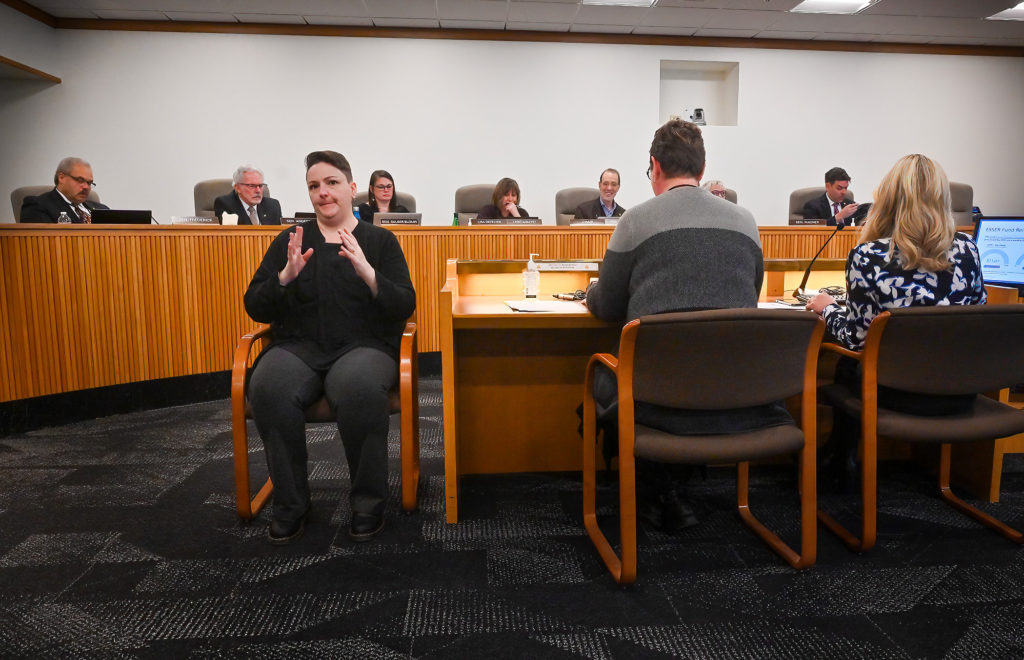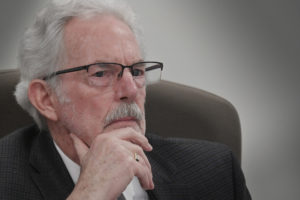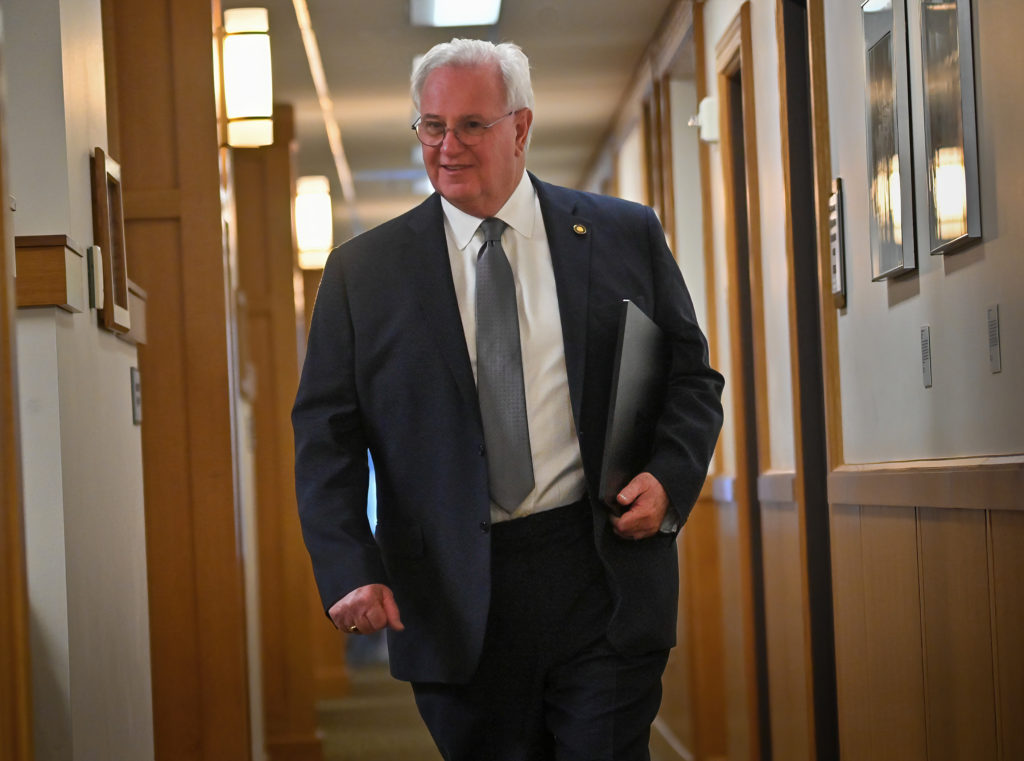
By KENNETH LIPP/YachatsNews
Lincoln County’s legislators are optimistic about cooperation in Salem as they head to the Capitol to tackle ambitious goals for the 2023 session.
Gov. Tina Kotek and both Democrats and Republicans in the Oregon Legislature have identified priorities for this year’s legislative session that, in many areas, overlap.
Solutions differ, but on everyone’s list are the dual issues of housing and homelessness. Lawmakers will also face a projected increase in the cost of K-12 education, take a look at adding accountability for how billions in corporate taxes are spent on schools — Republicans want the tax rolled back — and focus on addressing addiction and behavioral health.
Most bills adopted go into effect with a new biennial budget in July, but measures passed in the first 60 days can be paid for in the current budget. The governor has asked the Legislature to approve $130 million in that timeframe to respond to the crisis level of homelessness in the state.
Republicans are still in the minority, but will have more influence with the loss of the Democratic supermajorities in the Senate and House. After one day in session, Lincoln County’s two legislators see hope for bipartisanship and a smoother session than years past.
Anderson’s second full session

YachatsNews spoke to Sen. Dick Anderson, R-Lincoln City, on Monday, the day before his second daily commute to Salem for the new session.
Lincoln County voters sent the former Lincoln City mayor to Salem in January 2021, flipping the seat after the retirement of Democrat Arnie Roblan of Coos Bay, who held it for eight years following two terms in the House.
Anderson said he’d not yet dug into the 700-800 bills proposed in the Senate the first day. There was more than 1,000 introduced in the House, and he expects total bills will likely peak at more than 3,500 before being winnowed down in committee. Once they’re categorized and assigned to committees, the senator said he and his staff will get into the details of each.
He’ll get to thoroughly wrestle with two consensus priorities as vice chair of the Senate housing committee and a member of the education committee. On the issue of housing, Anderson said, the solution is supply.
“The answer is more housing is needed, so I’m more on the production side and the need for more units,” Anderson told YachatsNews. Kotek recently said the state needs to build 36,000 units a year for five years.
Addressing education should also include assistance for child care, Anderson said. Oregon as a whole, and most counties individually, are considered “child care deserts” for all age groups, meaning there are at least three children for every child care slot.
Every Oregon county individually is a child care desert for infants to 2-year-olds, and Lincoln County has a critically low availability in this age group — about 20 children per slot, according to a 2021 Oregon State University study of pre-pandemic data. COVID-19 and public health restrictions only worsened the picture.
Anderson learned last year of a state building code rule change that required all child care providers to install fire suppression systems — at a cost of several thousand up to more than $10,000 — discouraging home-based caregivers whose capacity and revenue is limited. He took the issue to the short session in Salem and convinced other lawmakers to change the rule.
On chances for more bipartisanship with the Democrats’ loss of super majorities in both chambers, Anderson said he’s hopeful.
“I’ve always said the closer we get to 15-15 in the Senate the better, because it forces a compromise and listening to each other to come up with the best piece of legislation,” he said.
The practical consequences of the addition of one seat for the minority party in the Senate and House, Anderson said, is that Republicans can still deny a quorum, and any tax bill will require some GOP votes.
“You still have a strong enough majority of one party that policy bills can sail on through,” he said. “But it’s a great step. I think it’s healthy.”
Anderson said he has good relationships on both sides of the aisle that he nurtured in off-session work groups, talking through challenges and potential lawmaking.
“I like to think that’s the best time to help shape the end result of a bill,” Anderson said. “At the end of the session, I’ll tell you if that worked. As a minority party member in the Senate, I look for tools to be heard and have a voice.”
He said he’s carrying a clear message from his constituents to Salem.
“They’d like, especially businesses, they’d like to be left alone,” he said. “They, like most, have had enough. (They say), ‘Legislators, you’ve beat us up if we’re a landlord, you’ve beat us up if we’re a business owner, put a lot of regulation on us in health care. Why don’t you guys just sit back and let this stuff settle in?’ And I can’t disagree with them.”
It will be the first session since Anderson was elected that legislators will face the public inside the Capitol, an experience he said he looks forward to. Space will be limited due to ongoing construction, however.
The senator said he expects to see several approved measures that were not properly vetted return to the floor to be fixed.
“The other thing is, once again, we start off the session as we did in 2021 with expectations of, in essence, a deficit in revenue,” he said. “In 2021, the feds bailed everybody out. I don’t expect that to happen again. So it’s going to be around the money. Where to spend — you either raise taxes to get to your revenue point that you need, or you start scaling back … I would like to think some efficiency would take care of that. But efficiency doesn’t come overnight.”

Gomberg heads rural group
Both of Lincoln County’s legislators agree that vigilance is necessary to make sure non-metro areas are included in Salem’s decision-making.
“I think that the new leadership of the Legislature is squarely focused on the challenges facing Oregon,” Rep. David Gomberg said Monday after returning from the Capitol, where he’s represented the 10th District since 2013. “My challenge is making sure whatever we do about those larger, statewide issues, reaches our part of Oregon with equal effectiveness.”
He said an example is the exclusion of rural areas from the governor’s homelessness emergency declaration, a move Gomberg and Anderson formally protested as chair and vice chair of the Coastal Caucus.
Toward that end, Gomberg said was asked by House speaker Rep. Dan Rayfield, D-Corvallis, to coordinate a legislative package on rural economic development. He partnered with another Democrat and two Republicans to propose seven bills worth about $100 million.
“The marine task force and blue economy is one focus,” Gomberg said. “Getting more Oregon seafood into Oregon restaurants is another one. Helping small farmers with meat processing, because there’s just not enough inspectors to help them turn their meat into a marketable product.”
Probably most important, Gomberg said, were bills dealing with rural housing and buildable lands.
In coast-specific issues, he said he’s proposed a $20 million bill to help hospitals prepare for disasters.
“We’re asking Oregon families to be three-weeks ready, but our Oregon coastal hospitals have an average of three-days supply of water and fuel,” Gomberg said. That bill pairs with another aimed at helping kids prepare.
“We already do drills for earthquakes, fires, and very sadly for active shooters,” he said. “But we don’t talk about how to get ready for natural disasters. How do you connect with your family? What goes in your ‘go’ kit?” He said his bill proposed dedicating one day a year to education on the topic.
Also on his plate for the first half of the session, he said, is making sure funding for the city of Newport’s dam replacement doesn’t face bureaucratic hurdles.
During the second half of the session, Gomberg said he plans to work to get general fund money or lottery revenues dedicated to local water and sewer projects and ports.
The six-term representative said Monday was the smoothest session opening he’s seen in many years.
“I think there’s a greater level of trust and desire for cooperation,” Gomberg said. “That said, there are also new rules in place, that would not preclude but in all practical purposes prevent a walk-out,” he said, referring to the successful November 2022 ballot measure disqualifying from re-election legislators with 10 unexcused absences.
“Now, you ask about the partisan balance. Well, there’s been a slight shift,” Gomberg said. “I think the more salient detail is how many new members we have in the House and the Senate.”
One-third of the house are first-term legislators, following a year with about 15 newcomers who’ve never attended a full session in-person. Because of Covid restrictions, the last session was held remotely except for voting on the floor, a constitutional requirement, done in shifts to ensure social distancing.
“We’ve never sat down across the lunch table from each other,” Gomberg said. “And because we’ve got a lot of new people, a lot of them are in leadership positions.”
From his constituents, he said he’s hearing about three big issues: housing, housing and housing.
“Related to that is homelessness and the shortage of workers,” he said.
- Kenneth Lipp is YachatsNews’ full-time reporter and can be reached at KenLipp@YachatsNews.com


